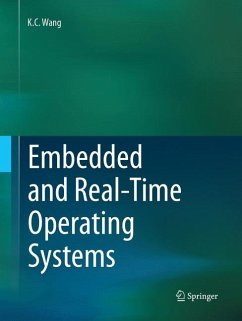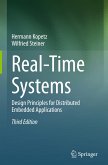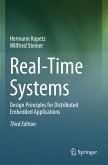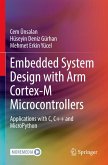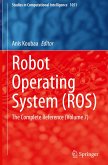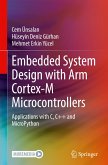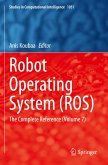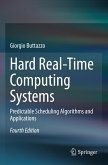This book covers the basic concepts and principles of operating systems, showing how to apply them to the design and implementation of complete operating systems for embedded and real-time systems. It includes all the foundational and background information on ARM architecture, ARM instructions and programming, toolchain for developing programs, virtual machines for software implementation and testing, program execution image, function call conventions, run-time stack usage and link C programs with assembly code.
It describes the design and implementation of a complete OS for embedded systems in incremental steps, explaining the design principles and implementation techniques. For Symmetric Multiprocessing (SMP) embedded systems, the author examines the ARM MPcore processors, which include the SCU and GIC for interrupts routing and interprocessor communication and synchronization by Software Generated Interrupts (SGIs).Throughout the book, complete working sample systems demonstrate the design principles and implementation techniques. The content is suitable for advanced-level and graduate students working in software engineering, programming, and systems theory.
It describes the design and implementation of a complete OS for embedded systems in incremental steps, explaining the design principles and implementation techniques. For Symmetric Multiprocessing (SMP) embedded systems, the author examines the ARM MPcore processors, which include the SCU and GIC for interrupts routing and interprocessor communication and synchronization by Software Generated Interrupts (SGIs).Throughout the book, complete working sample systems demonstrate the design principles and implementation techniques. The content is suitable for advanced-level and graduate students working in software engineering, programming, and systems theory.

